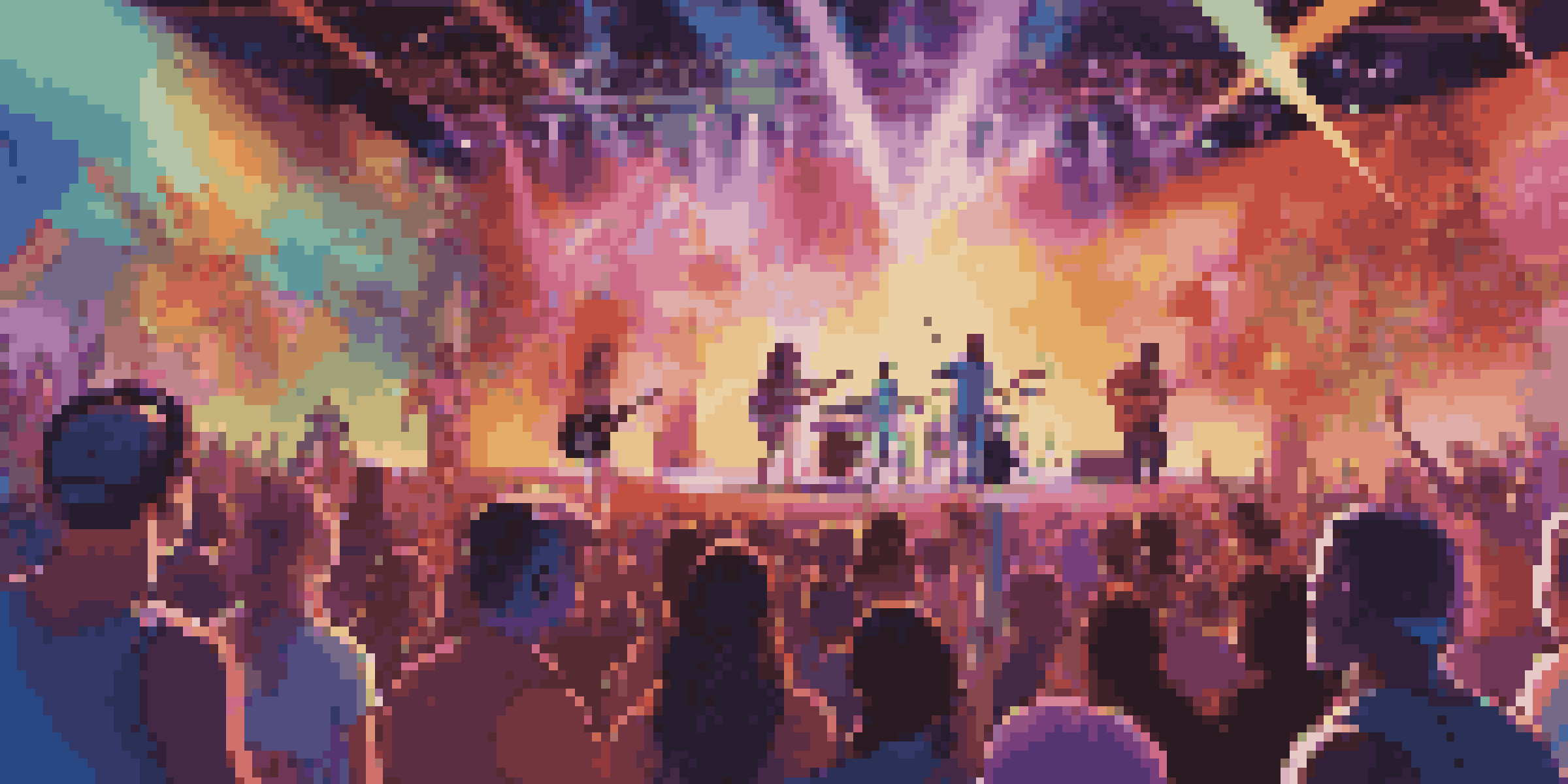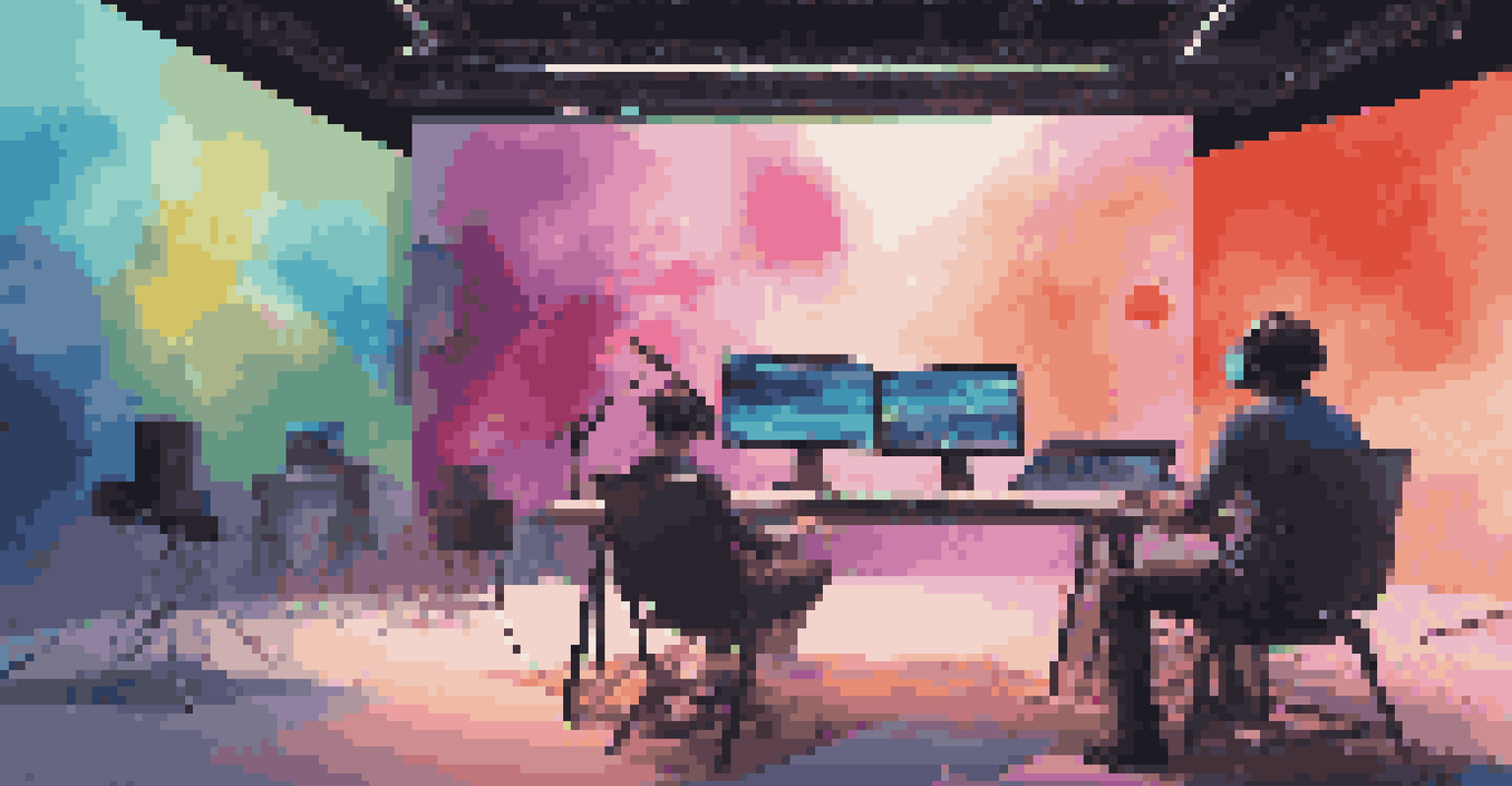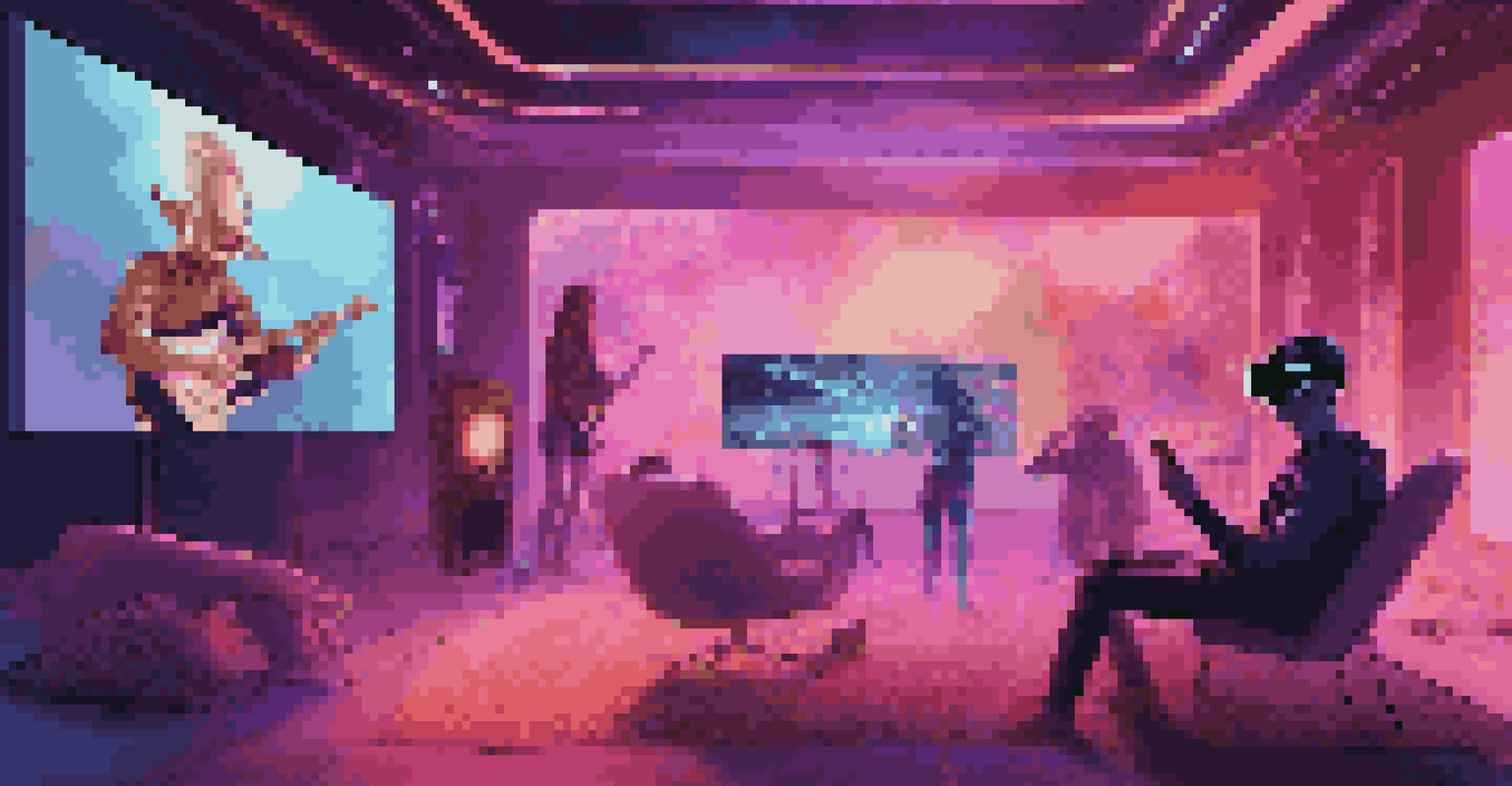The Future of Live Music and the Metaverse

Understanding the Metaverse and Its Appeal
The metaverse is essentially a collective virtual space where people can interact, create, and share experiences. It combines elements of virtual reality (VR), augmented reality (AR), and the internet, creating immersive environments that feel real. For music lovers, this opens up a whole new world of possibilities for attending concerts from the comfort of their homes.
The metaverse is not just a new technology; it is a new way to experience and interact with music and art.
Imagine enjoying a front-row seat at a concert without the hassle of traffic, ticket lines, or crowded venues. The metaverse makes this possible by allowing fans to experience live performances in ways that traditional venues simply can't offer. This shift not only enhances accessibility but also creates unique engagement opportunities for artists and audiences alike.
As the technology behind the metaverse continues to evolve, so does its appeal. Artists can craft entire worlds around their music, giving fans a multi-sensory experience that goes beyond just listening. This new frontier invites creativity and innovation, transforming how we perceive live music.
How Live Music Events Are Evolving
Live music events in the metaverse are not just about replicating traditional concerts; they’re about reinventing them. With interactive elements, fans can influence the show, such as choosing setlists or altering visual effects in real-time. This level of engagement creates a sense of ownership and connection that traditional formats often lack.

Additionally, virtual events can host larger audiences without the limitations of physical space. While a typical concert venue might hold a few thousand fans, a metaverse concert can accommodate millions from around the globe. This democratization of access brings diverse audiences together, fostering a sense of community among fans who might never have the chance to meet otherwise.
Moreover, artists can collaborate with creators and brands to enhance the experience. For instance, a musician might partner with a visual artist to create stunning backdrops that respond to the music, making each show a unique spectacle. This innovation not only elevates the performance but also opens new revenue streams for artists.
The Role of Technology in Shaping Experiences
At the heart of the metaverse experience lies advanced technology. Virtual reality headsets and augmented reality applications allow fans to immerse themselves fully in a concert, feeling as if they are right there with the artists. These technologies have become increasingly accessible, making it easier for more people to join the experience.
Music is the universal language of mankind, and the metaverse is the stage where that language can reach every corner of the globe.
Streaming platforms are also evolving, incorporating features that enhance interactivity and social engagement. Fans can chat, dance, or even participate in mini-games during a live performance, creating a communal atmosphere that mirrors the excitement of being at a live event. This fusion of entertainment and technology is transforming how we enjoy music.
As tech continues to advance, we can expect even more innovative features. Imagine haptic feedback suits that let you feel the bass reverberating through your body or 360-degree visuals that make you feel surrounded by the music. The possibilities are vast, and they are only just beginning to be explored.
Challenges Facing Live Music in the Metaverse
Despite its exciting potential, the future of live music in the metaverse faces several challenges. One major concern is the quality of the experience; lagging internet connections or low-quality graphics can detract from the immersive feel that fans expect. Ensuring a seamless experience will be crucial for attracting and retaining audiences.
Moreover, there are questions around monetization and artist compensation. As more concerts move online, traditional revenue streams like ticket sales may be disrupted. Finding a sustainable business model that benefits both artists and platforms will be essential for the growth of virtual live music.
Finally, there’s the issue of inclusivity. While the metaverse can make concerts more accessible, it can also create barriers for those without the necessary technology. Addressing these disparities will be vital to ensure that everyone has the opportunity to experience live music in this new realm.
Cultural Impact of Virtual Concerts
Virtual concerts are not just a trend; they represent a cultural shift in how we connect with music and each other. Artists are now able to reach global audiences, transcending geographic boundaries that once limited their reach. This cultural expansion can lead to the blending of different musical genres and styles, enriching the overall music scene.
Furthermore, the metaverse allows for a diversification of voices and talent. Independent and emerging artists can gain visibility alongside established names, leveling the playing field. This democratization of the music industry could lead to a more vibrant and varied cultural landscape.
As audiences engage with a wider array of artists, they also develop new tastes and preferences. This shift not only stimulates creativity among musicians but also encourages collaboration across genres and cultures, ultimately enriching the global music community.
The Future of Fan Engagement
Fan engagement in the metaverse is set to take on new dimensions. With interactive platforms, fans can participate in community events, such as Q&A sessions or meet-and-greets with their favorite artists. This direct interaction helps to foster loyalty and a sense of belonging among fans, making them feel like an integral part of the artistic journey.
Additionally, fans can create and share their own content related to the concerts, such as artwork or remixes, which can be showcased in the metaverse. This kind of user-generated content not only enhances the overall experience but also allows fans to express their creativity and connect with others who share their passions.
As the metaverse evolves, so too will the ways fans engage with music. Innovations such as virtual reality meetups or collaborative projects could redefine the artist-fan relationship, creating a more dynamic and interactive music culture.
Looking Ahead: The Future of Live Music
As we look to the future, the integration of live music and the metaverse seems inevitable. The blending of physical and virtual experiences could create hybrid concerts that allow fans to choose how they participate. Whether through VR headsets, live streaming, or in-person attendance, audiences will have the freedom to engage with music in ways that suit their preferences.
Moreover, as technology advances, we might see even more innovative formats for live performances. Imagine concerts that feature holographic representations of artists performing alongside real musicians, creating a stunning visual and auditory experience. This fusion of the real and virtual could lead to entirely new genres and performance styles.

Ultimately, the future of live music in the metaverse is not just about technology; it's about human connection. As we navigate this new landscape, the core of music—bringing people together—will remain central to the experience, ensuring that the heart of live music beats on, no matter the platform.